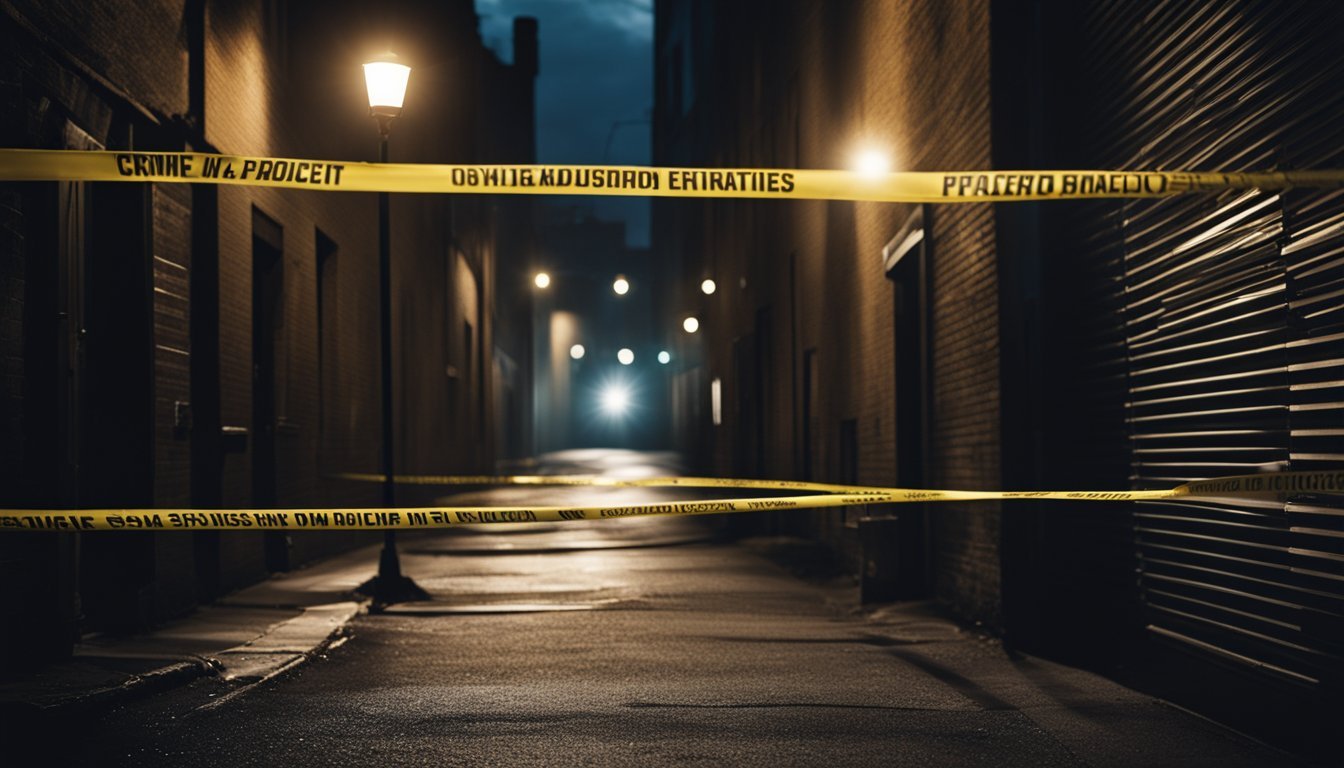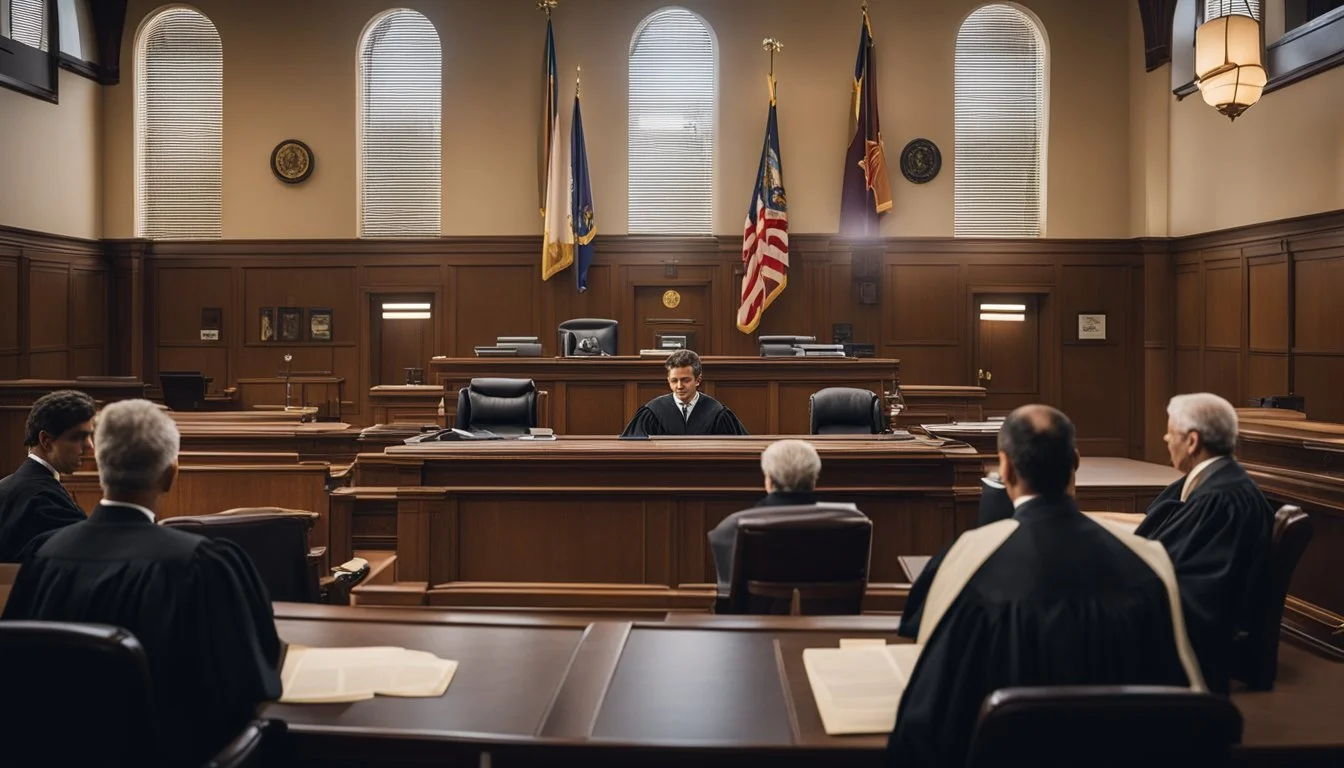8 Gripping True Crime Documentaries Set in California You Can't Miss
True crime documentaries set in California offer a compelling look into some of the most chilling and perplexing criminal cases in history. The state's diverse landscape, coupled with its bustling cities, has been the backdrop for numerous infamous crimes that have captivated audiences worldwide.
What makes these documentaries particularly gripping is their ability to delve into the human stories behind these crimes, providing viewers with a deeper understanding of both the victims and perpetrators. From serial killers to unsolved mysteries, these films provide a thorough exploration of the dark side of California's history.
1) The Dating Game Killer (2023)
The story of Rodney Alcala, also known as "The Dating Game Killer," is both chilling and intriguing. Alcala, a convicted serial killer, appeared on the popular TV show "The Dating Game" in 1978, impressing the audience and winning a date with a contestant.
He was a charismatic individual with a high IQ, which he used to his advantage to lure his victims. Alcala's charm masked his dark side, leading to a string of murders across California and other states.
The documentary delves into Alcala's appearance on the game show and how he continued to commit heinous crimes even after his television debut. Interviews with survivors and investigators provide a comprehensive look at his life and crimes.
For more information on "The Dating Game Killer" (2023), check out the IMDB page.
2) I Am the Night: The Black Dahlia (2019)
"I Am the Night," a 2019 American limited television series, delves into one of Los Angeles' most infamous cold cases: the Black Dahlia murder. Created by Sam Sheridan, the series features Chris Pine and India Eisley in leading roles.
Set in the early 1960s, the narrative follows a teenage girl named Fauna Hodel and a disgraced journalist, Jay Singletary. Together, they uncover a web of secrets involving Fauna's mysterious past and the murder of Elizabeth Short, famously known as the Black Dahlia.
Fauna's grandfather, Dr. George Hodel, becomes a key figure in their investigation. Historically, George Hodel was considered a prime suspect in the Black Dahlia murder case, adding an eerie authenticity to the series' suspenseful plot.
While "I Am the Night" incorporates fictional elements, it remains rooted in real events and people. The character of Jay Singletary, for instance, is a composite of various reporters and detectives from that era, blending fiction with true crime.
"I Am the Night" is inspired by Fauna Hodel's memoir, "One Day She’ll Darken: The Mysterious Beginnings of Fauna Hodel," providing viewers with a deep dive into the troubling history that surrounds the Black Dahlia case.
To learn more about the series, visit IMDb.
3) Helter Skelter: An American Myth (2020)
"Helter Skelter: An American Myth" is a TV mini-series that explores the infamous Manson Family crimes. The series uses new interviews and archival materials to present a detailed retelling of events.
This documentary integrates narratives from former Manson Family members and journalists. It provides unique perspectives and rarely seen footage that challenge common assumptions about the case.
The show spans six hours and dives deeply into the Tate-LaBianca murders and the trial that followed. It also explores Charles Manson’s early life and how he acquired the skills that led to the notorious events.
It is widely accessible on various streaming platforms, including Prime Video and Apple TV, offering viewers an in-depth look at one of America’s most shocking true crime stories.
For more information, visit IMDb.
4) The Confession Killer (2019)
The Confession Killer is a gripping documentary series available on Netflix. It centers around Henry Lee Lucas, a man who rose to infamy after confessing to hundreds of unsolved murders.
Lucas' confessions brought him into the spotlight and left authorities puzzled.
He claimed responsibility for as many as 600 murders, but investigations later revealed significant discrepancies in his stories. Authorities and journalists began to unearth the truth behind his proclamations.
Many of Lucas' confessions are now considered fraudulent, casting doubt on his true culpability in numerous cases.
Authorities remained skeptical about his actual involvement in many of the murders, leading to a complex and compelling story that captivated the public.
The documentary invites viewers to explore the broader impact of Lucas' confessions on law enforcement and the families of victims, making it a must-watch for true crime enthusiasts.
For more information, visit the Netflix page.
5) The Night Stalker: The Hunt for a Serial Killer (2021)
"The Night Stalker: The Hunt for a Serial Killer" is a true crime documentary miniseries that explores the notorious crimes of Richard Ramirez. This series takes viewers through the harrowing investigation led by detectives Gil Carrillo and Frank Salerno.
Set against the backdrop of 1985 Los Angeles, the documentary provides a detailed account of the brutality associated with Ramirez's crimes. It delves into the fear that gripped the city and the tireless efforts of the detectives to bring him to justice.
The series effectively uses archival footage, interviews, and reconstructions to tell the story. It highlights the dedication and determination of law enforcement in tracking down one of America's most heinous serial killers.
For those interested in true crime, this documentary offers a gripping look into the psychological and investigative elements of the case. It provides an in-depth perspective on the chaos and terror inflicted by Ramirez and the relentless pursuit to capture him.
Find more information about the series on IMDb.
6) Murder Mountain (2018)
Murder Mountain is a gripping true crime documentary series centered in Humboldt County, California. The series explores the area’s marijuana industry and uncovers disturbing tales of disappearances and homicides.
Released on Fusion TV and later picked up by Netflix, the show delves into the mysterious and often dangerous world of the Emerald Triangle.
The documentary features interviews with law enforcement, residents, and those involved in the local marijuana trade. It paints a picture of a community where the quest for quick riches can lead to deadly consequences.
Viewers get a firsthand look at the complexities of Humboldt County’s culture, where legal and illegal activities intertwine. The series also sheds light on the challenges faced by authorities in this remote region.
For more detailed information, visit IMDb - Murder Mountain.
7) Mindhunter (2017)
"Mindhunter" delves into the early days of criminal profiling at the FBI through a dramatized lens.
Inspired by the real-life work of FBI agent John E. Douglas, the show gives viewers a glimpse into the minds of some of the most notorious serial killers.
The series is based on the book "Mindhunter: Inside the FBI's Elite Serial Crime Unit" by John Douglas and Mark Olshaker.
The show features in-depth interviews with these criminals, attempting to understand their motives and patterns.
Episodes cover well-known cases, shedding light on both the investigators and the criminals.
The depth of the characters and the chilling real-life cases make "Mindhunter" a captivating watch for true crime enthusiasts.
Directed by notable figures like David Fincher, the series has garnered praise for its realistic portrayal of criminal psychology.
For more about Mindhunter, visit IMDb.
8) The Trials of Gabriel Fernandez (2020)
The Trials of Gabriel Fernandez is a true crime documentary series that aired on Netflix. The series delves into the harrowing case of Gabriel Fernandez, an eight-year-old boy from Palmdale, California, who was brutally murdered in 2013.
Gabriel's mother, Pearl Fernandez, and her boyfriend, Isauro Aguirre, were charged with the crime. The documentary explores how systemic failures and missed opportunities by social services allowed the abuse to go unnoticed until it was too late.
Throughout six episodes, viewers are taken through the emotional and legal battles that followed Gabriel’s death. The series highlights the public trials of his guardians and the social workers who were supposed to protect him.
The Trials of Gabriel Fernandez examines the broader issues within Los Angeles County's child protective services. It raises critical questions about accountability and the safeguards in place to protect vulnerable children.
More about The Trials of Gabriel Fernandez can be found on Wikipedia.
Historical Context of True Crime in California
California has long been a focal point for some of the most notorious and impactful true crime cases. These cases have not only gripped the public but have also led to significant societal changes.
Notable Cases
The state has seen a multitude of high-profile cases that have captured national attention. The Golden State Killer, responsible for over 50 rapes and at least 13 murders from 1974 to 1986, is one of the most infamous. His capture in 2018, in part due to the efforts of true crime writer Michelle McNamara, epitomized the enduring mystery and impact of unsolved crimes.
Another significant case is that of the Night Stalker, Richard Ramirez, who terrorized Los Angeles from 1984 to 1985 with a series of brutal home invasions and murders. His trial and conviction underscored the growing public fascination with and horror at such violent criminal behavior.
Charles Manson and his followers executed a series of heinous murders in the late 1960s, which profoundly affected Hollywood and American culture. The Manson Family's crimes exemplified the dark underside of the California dream and shifted public perceptions of safety and innocence.
Impact on Society
These notorious cases have had far-reaching effects on California and beyond. The heightened media coverage often led to public panic but also increased awareness and improvements in law enforcement practices. Community policing and forensic science, for example, saw significant advancements due to lessons learned from these high-pressure investigations.
Public policies were also influenced. The impact of the Manson Family murders led to more restrictive parole laws, while the Golden State Killer case advanced the use of DNA technology in solving cold cases.
The societal fascination with true crime has grown, giving rise to a proliferation of documentaries, books, and articles. This media attention has helped keep these cases in the public eye, contributing to a broader dialogue on crime prevention and justice reform.
Filmmaking Techniques in True Crime Documentaries
True crime documentaries employ a variety of filmmaking techniques to engage viewers while effectively conveying complex narratives. Key techniques include narrative structure and the use of interviews.
Narrative Structure
Effective true crime documentaries often use a chronological narrative structure, presenting events as they occurred. This allows viewers to follow the story naturally.
Some documentaries, like Making a Murderer, utilize a non-linear approach, interweaving past and present events. This technique adds layers of complexity, encouraging viewers to piece together the timeline.
Certain films opt for thematic organization, focusing on specific aspects of the crime or investigation. This method can highlight systemic issues, such as flaws in the criminal justice system.
Use of Interviews
Interviews with key individuals, including witnesses, victims, and investigators, are pivotal in true crime documentaries. These interviews provide firsthand accounts that add authenticity and depth to the story.
Filmmakers often use emotional testimonials to create a human connection with the audience, fostering empathy and understanding.
Incorporation of expert analysis from criminologists, psychologists, and legal professionals aids in explaining the complexities of the case, offering insights that might not be immediately evident from the narrative alone.
Strategic use of interview clips can also enhance suspense and intrigue, revealing information gradually to maintain viewer interest.
Legal and Ethical Considerations
True crime documentaries set in California must navigate complex legal and ethical landscapes. Critical topics include maintaining privacy and ensuring fair representation of victims and suspects.
Privacy Concerns
True crime documentaries often scrutinize events deeply affecting individuals and families. Privacy becomes paramount, especially concerning victims and their relatives. Documentarians must gain proper consent before revealing any personal information, ensuring that sensitive data is not exposed without permission.
It is also essential to respect the privacy of individuals who may be implicated but not convicted, as wrongful exposure can lead to undue harm. Laws such as the California Consumer Privacy Act (CCPA) provide guidelines on handling personal information, emphasizing the importance of protection and respect in storytelling.
Representation of Victims and Suspects
Accurate and respectful representation of both victims and suspects is crucial. Sensationalizing or dramatizing events can distort the truth and harm those involved. Documentarians must prioritize factual accuracy and avoid bias, offering a balanced view that respects the dignity of all parties.
Engaging experts like psychologists and criminologists, as seen in some successful series, ensures nuanced perspectives. The ethical responsibility extends to not glorifying perpetrators, instead highlighting the human impact of crimes. Respectful and responsible storytelling not only informs but also fosters meaningful conversations on justice and social issues.







